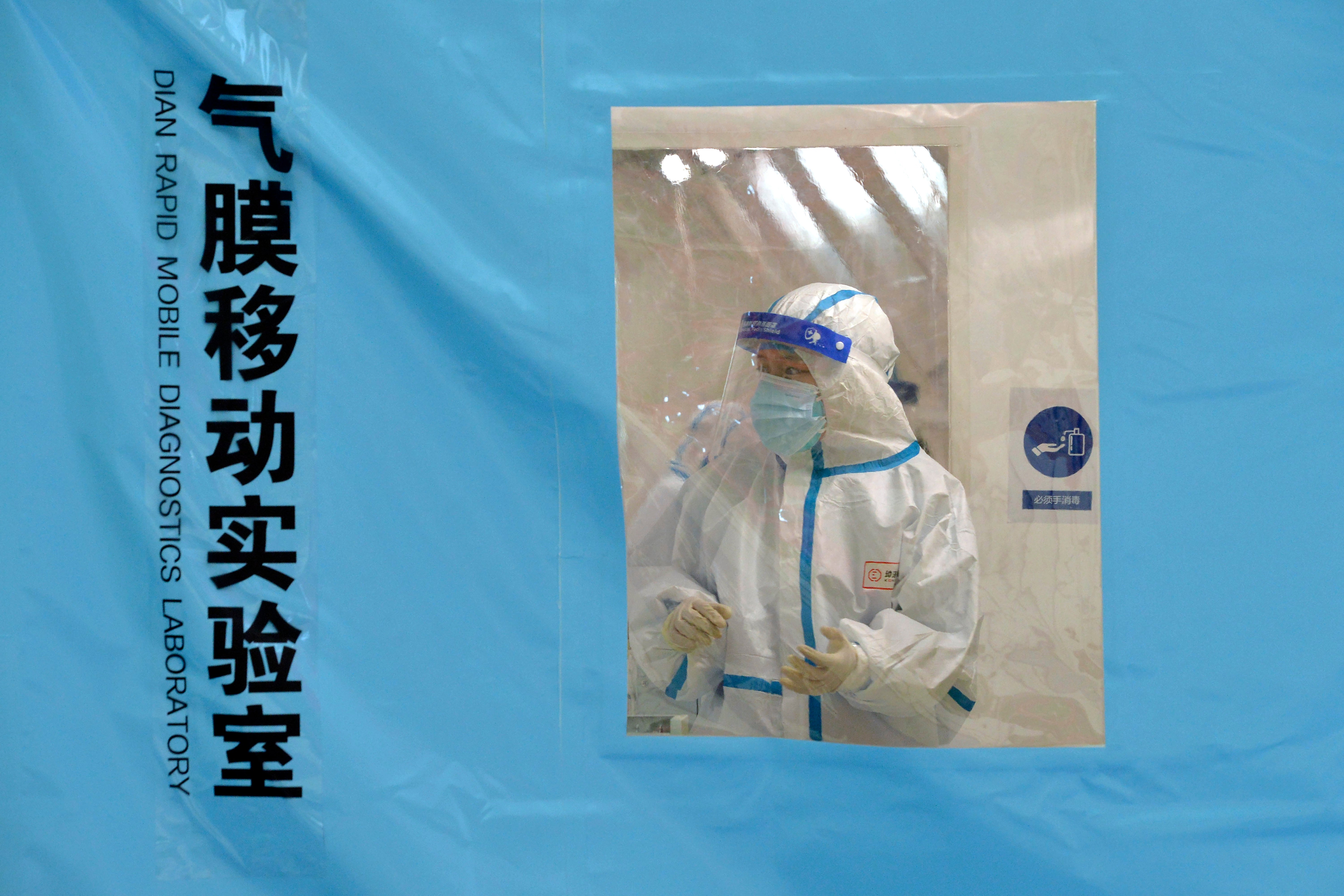China's Tianjin orders more testing on 14 million residents
The northern Chinese city of Tianjin has ordered a second round of COVID-19 testing on all 14 million residents after multiple cases of the omicron strain were found during initial screenings that began Sunday

Your support helps us to tell the story
From reproductive rights to climate change to Big Tech, The Independent is on the ground when the story is developing. Whether it's investigating the financials of Elon Musk's pro-Trump PAC or producing our latest documentary, 'The A Word', which shines a light on the American women fighting for reproductive rights, we know how important it is to parse out the facts from the messaging.
At such a critical moment in US history, we need reporters on the ground. Your donation allows us to keep sending journalists to speak to both sides of the story.
The Independent is trusted by Americans across the entire political spectrum. And unlike many other quality news outlets, we choose not to lock Americans out of our reporting and analysis with paywalls. We believe quality journalism should be available to everyone, paid for by those who can afford it.
Your support makes all the difference.The northern Chinese city of Tianjin ordered a second round of COVID-19 testing on all 14 million residents Wednesday following the discovery of 97 cases of the omicron variant during initial screenings that began Sunday.
Residents are to remain where they are until the results of all the nucleic acid tests are received, the official Xinhua News Agency said.
Xinhua said authorities have carried out almost 12 million tests so far, with 7.8 million samples returned. Infections were first reported on Saturday in the city that is only about an hour from Beijing which is to host the Winter Olympics from Feb. 4.
The city’s COVID-19 prevention and control office said all who have tested positive in the initial testing round were found to have the omicron variant, of which China has so far only reported a handful of cases. The source of the outbreak is still unknown and many who are spreading the strain may be doing so unwittingly because they show no symptoms.
Millions more are under lockdown in other Chinese cities under the strict “dynamic zero-case policy" that has allowed China to largely contain major outbreaks, although at considerable cost to the local economy.
Hong Kong has closed kindergartens and primary schools after infections were discovered among students, banned flights from the United States and seven other countries and held 2,500 passengers on a cruise ship for coronavirus testing Wednesday as the city attempted to stem an emerging omicron outbreak.
The semiautonomous Chinese city has tightened pandemic-related restrictions in recent days after discovering the omicron variant had spread beyond people arriving from overseas.
In total, China announced 166 new cases of COVID-19 in the 24 hours before Wednesday, including 33 in Tianjin and 118 in Henan province but just eight in the city of Xi'an home to the famed Terracotta Warrior statues and major industries, where a lockdown was imposed Dec. 23.
Authorities also released news of an inspection to Henan last week conducted by Vice Premier Sun Chunlan, who called for stepped-up measures to prevent the spread of both delta and omicron variants. COVID-19 has spread to three cities in the province, including Yuzhou, Anyang, and the provincial capital Zhengzhou, prompting travel bans and various levels of lockdown.
“It is necessary to do a good job in guaranteeing the living needs of the people in the closed and controlled communities, ensure the basic medical needs of the people during the epidemic period, and ensure that the people’s demands can be responded to and resolved in a timely manner," Sun was quoted as saying.
Some Xi'an residents have complained at their inability to source food and other daily necessities.